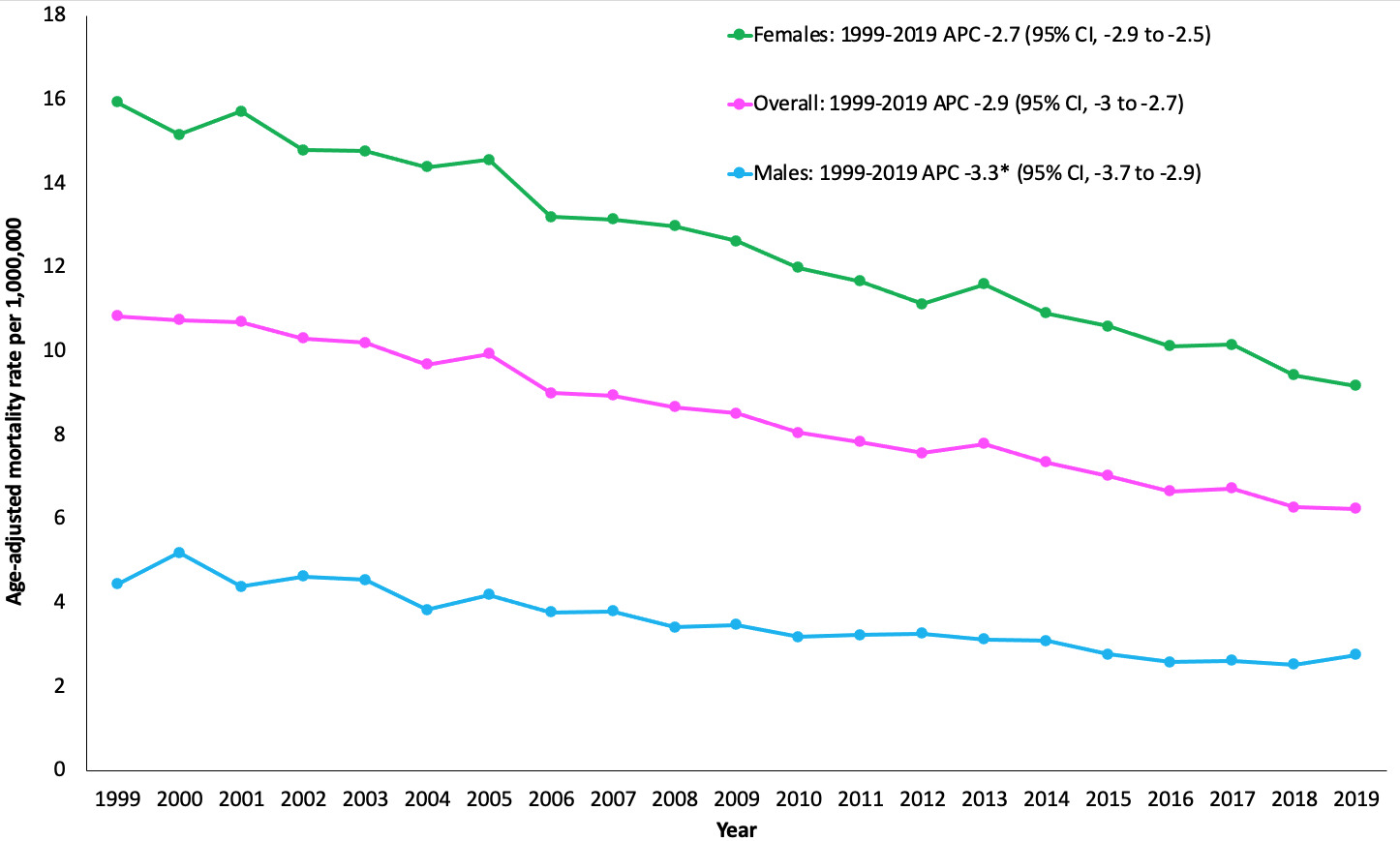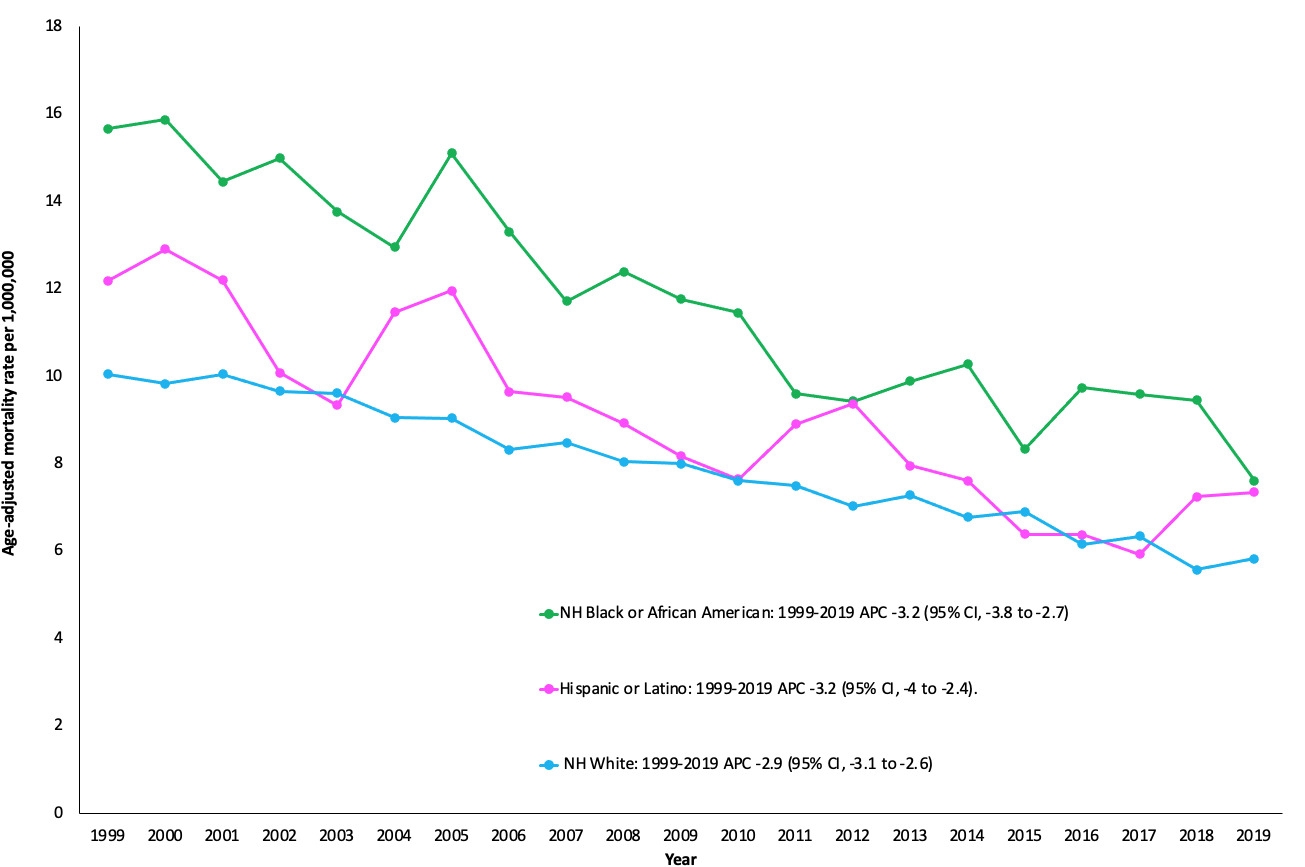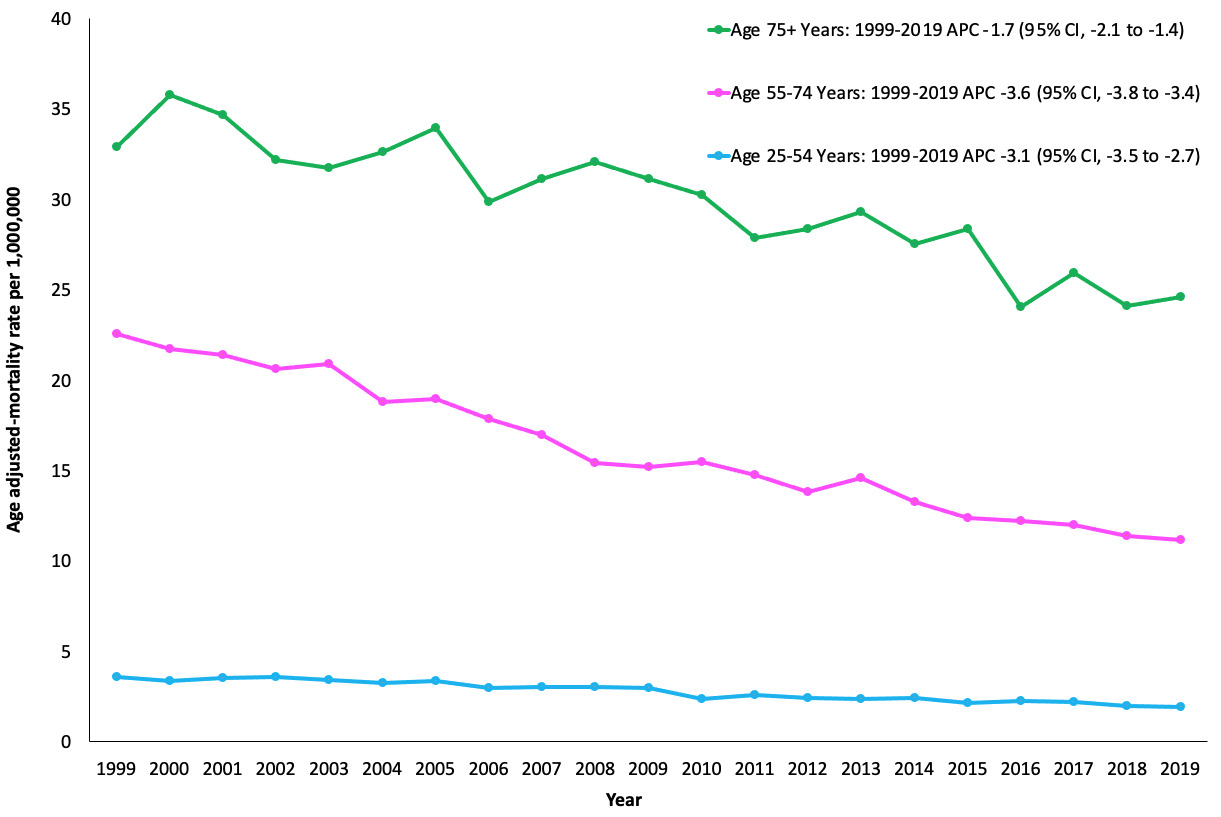Session Information
Session Type: Poster Session B
Session Time: 9:00AM-11:00AM
Background/Purpose: Systemic Sclerosis (SSc) is a rare chronic disease characterized by widespread vascular damage and tissue fibrosis of the skin and various internal organs, which is associated with high morbidity and mortality. National disparities in SSc- related deaths based on age, sex, and race have not been extensively studied. We examined the trends in SSc-related deaths in the United States from 1999-2019 stratified by age, sex, and race/ethnicity.
Methods: We used the Centers for Disease Control and Prevention Wide-Ranging OnLine Data for Epidemiologic Research (CDC WONDER) to access National Vital Statistics System data from 1999 to 2019. SSc-related deaths, age >/= 25 years were identified using the International Classification of Diseases, Tenth Revision, codes M34 from multiple causes of death and were represented as age-adjusted mortality rates (AAMR) per 1,000,000 population. Joinpoint regression was used to examine changes in trend using annual percentage change (APC) in SSc-related deaths overall and stratified by age groups (25-54 years [young], 55-74 years [midlife], and >/=75 years [old]), sex, racial/ethnic groups (non-Hispanic whites (NHWs), non-Hispanic blacks or African Americans (NHB/AAs), and Hispanic or Latinos).
Results: There were a total of 37,594 SSc-related deaths during the study period. AAMR related to SSc decreased from 10.84 (95% CI, 10.35 to 11.32) in 1999 to 6.24 (95% CI, 5.93 to 6.55) in 2019 (APC -2.9 [95% CI, −3.0 to −2.7]). AAMR was higher in women (12.37) than men (3.49). Among the racial/ethnic groups, AAMR was highest in NHB/AAs (11.47) followed by Hispanic or Latinos (8.58), and lastly NHWs (7.86). AAMR was highest in old (29.76) followed by midlife (15.64) and young (2.83). From 1999-2019 APC in AAMR decreased in men (-3.3 [95% CI, -3.7 to -2.9]), women (-2.7 [95% CI, -2.9 to -2.5]), NHWs (-2.9 [95% CI, -3.1 to -2.6]), NHB/AAs -3.2 (95% [CI, -3.8 to -2.7]), Hispanic or Latinos (-3.2 [95% CI, -4 to -2.4]), young (-3.1 (95% [CI, -3.5 to -2.7]) midlife (-3.6 [95% CI, -3.8 to -3.4] and old -1.7 [95% CI, -2.1 to -1.4]). AAMR related to SSc in 2020 was 6.28.
Conclusion: Our study showed a progressive decrease in SSc-related mortality throughout the study period regardless of gender, race, and age group. This could be due to early screening and management of life-threatening complications. Mortality was higher among females, NHBs, and older people. This could be due to higher SSc prevalence among these groups. Further research is required to understand the reasons for these disparities.
To cite this abstract in AMA style:
Akhlaq A, He E, Fayyaz R. Trends in Systemic Sclerosis- related Mortality by Age, Sex and Race in the United States, 1999-2019 [abstract]. Arthritis Rheumatol. 2023; 75 (suppl 9). https://acrabstracts.org/abstract/trends-in-systemic-sclerosis-related-mortality-by-age-sex-and-race-in-the-united-states-1999-2019/. Accessed .« Back to ACR Convergence 2023
ACR Meeting Abstracts - https://acrabstracts.org/abstract/trends-in-systemic-sclerosis-related-mortality-by-age-sex-and-race-in-the-united-states-1999-2019/



